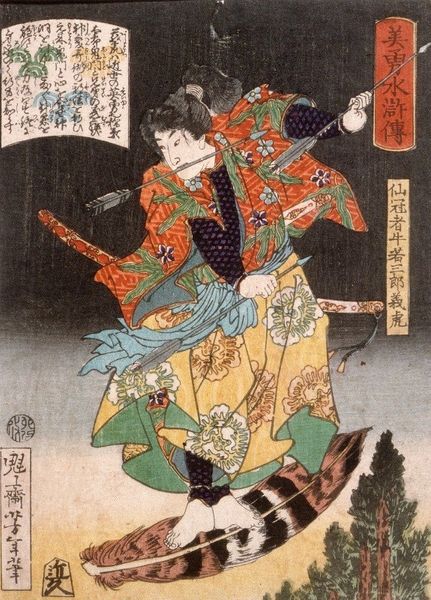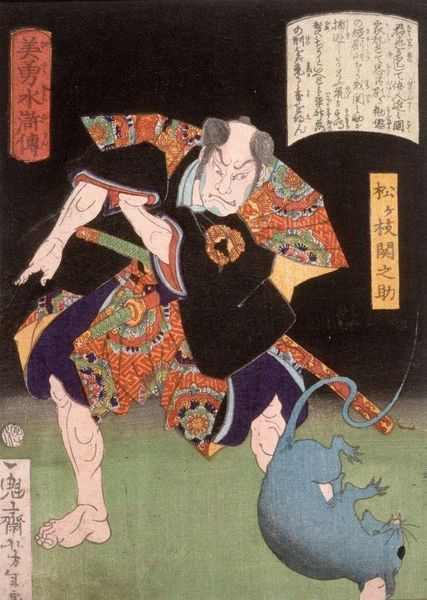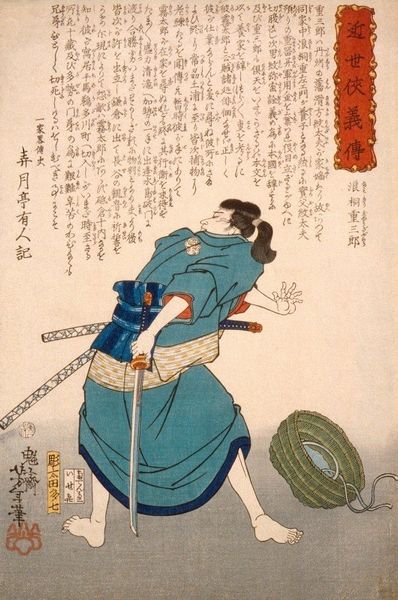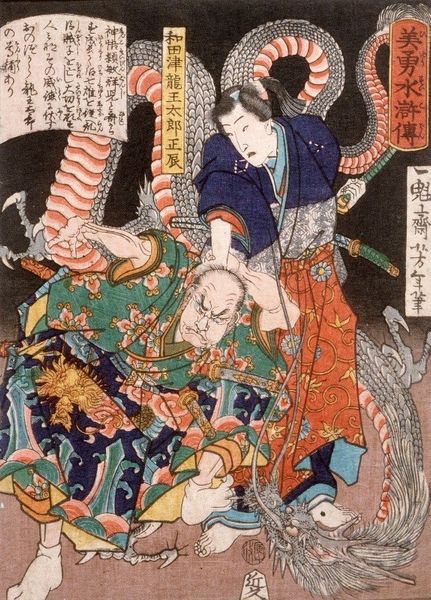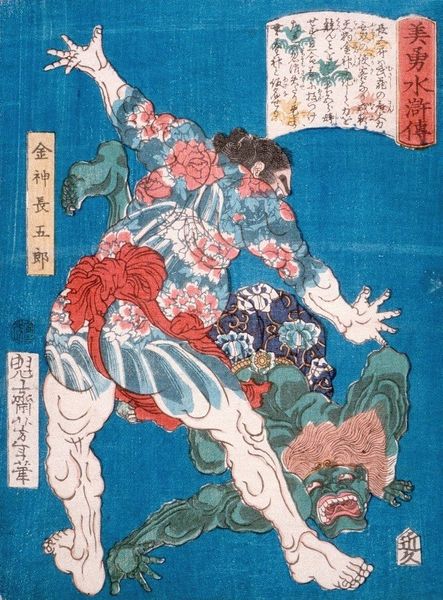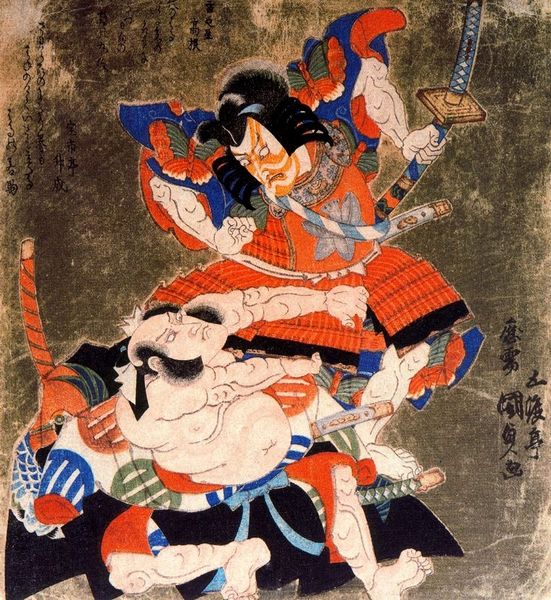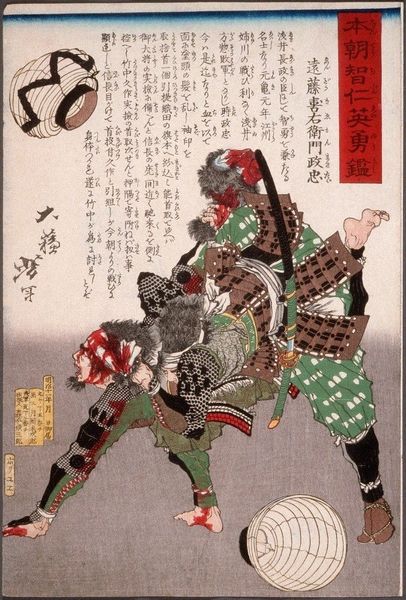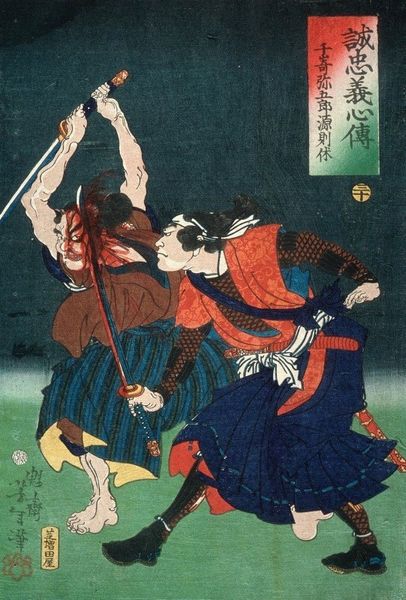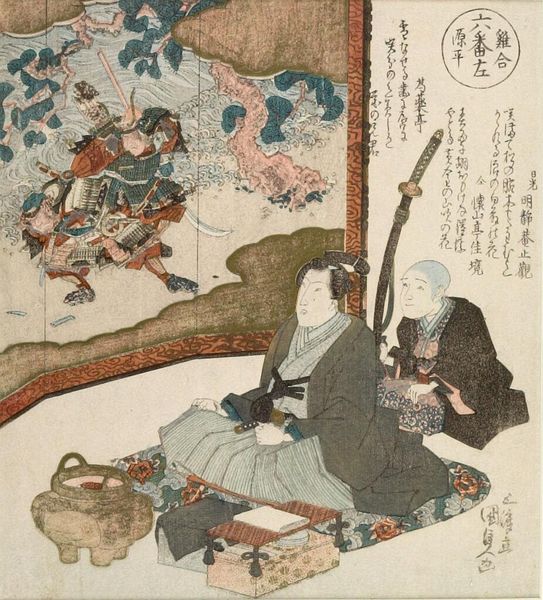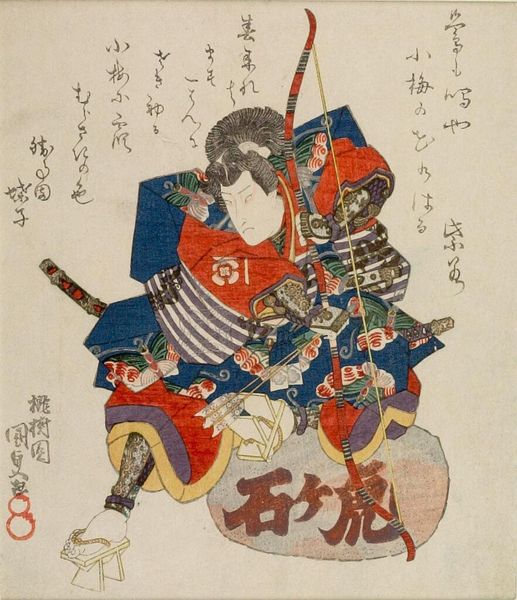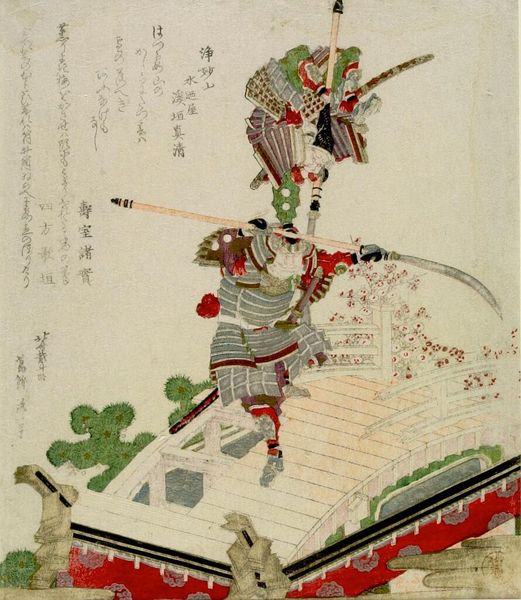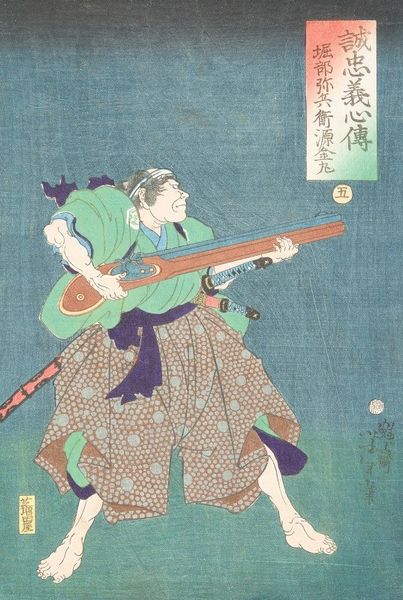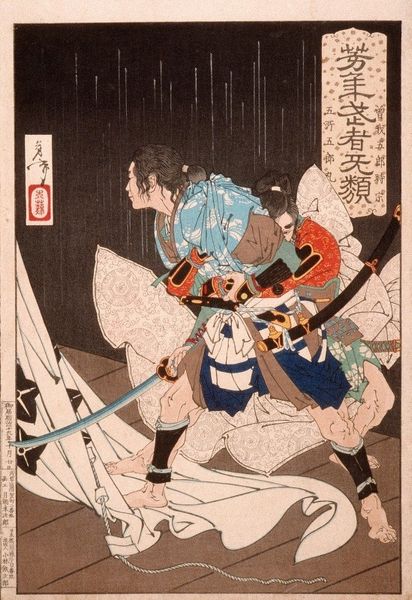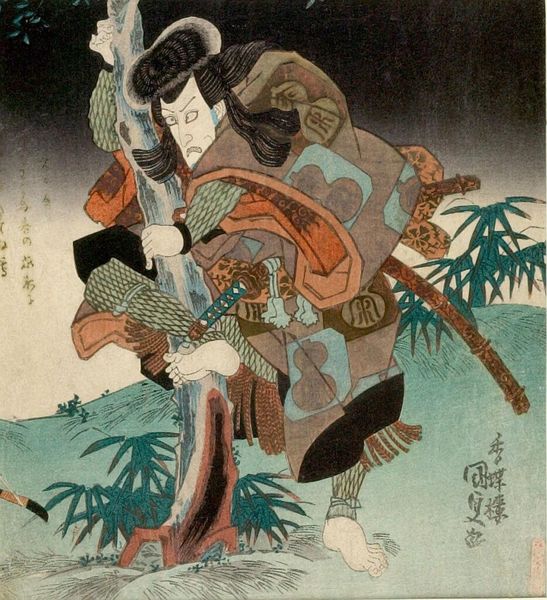
print, woodblock-print
#
narrative-art
# print
#
asian-art
#
ukiyo-e
#
figuration
#
woodblock-print
#
history-painting
Copyright: Public Domain: Artvee
This woodblock print by Tsukioka Yoshitoshi depicts Namekata Monya violently throwing an assailant to the ground. Here, the raised hand, a motif that echoes across cultures, strikes me profoundly. We see this gesture in ancient Roman art, in depictions of emperors asserting dominance, and even earlier in Egyptian art, representing power and control. Consider how this motif, laden with connotations of authority and command, migrates through time. It resurfaces during the Renaissance, adorning the canvases of masters like Michelangelo, where it signifies divine intervention. In Japanese prints, the raised hand assumes a different nuance, symbolizing not just authority, but also the immediate assertion of strength in martial prowess. Such gestures, embedded in our collective memory, tap into deep, subconscious fears and desires. The psychological impact of these symbols is a powerful force, engaging viewers on a primal level. Note, though, the cyclical progression of this symbol, a testament to its enduring relevance, it resurfaces, evolves, and takes on new meanings in different historical contexts.
Comments
No comments
Be the first to comment and join the conversation on the ultimate creative platform.
